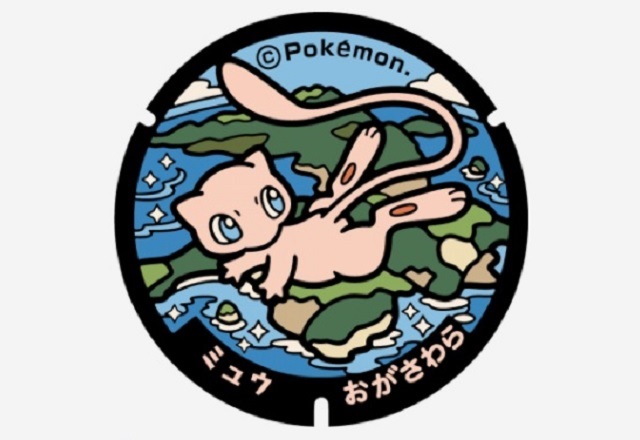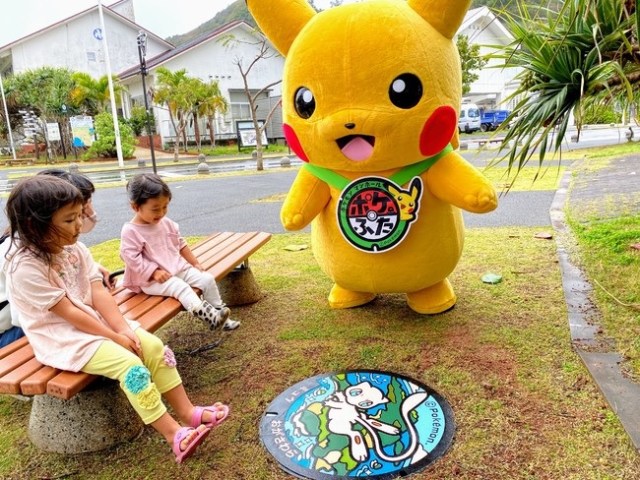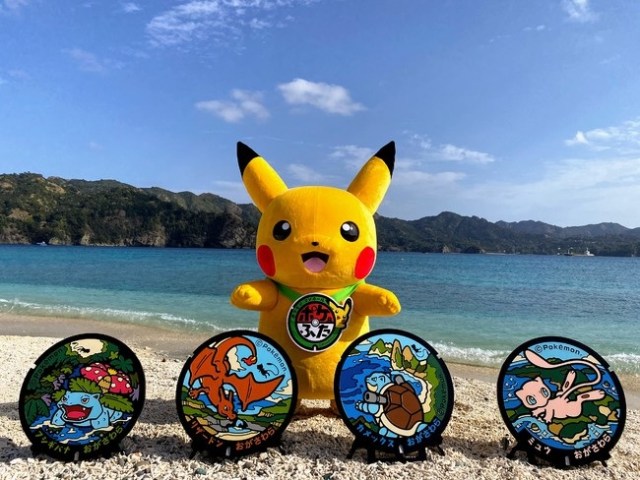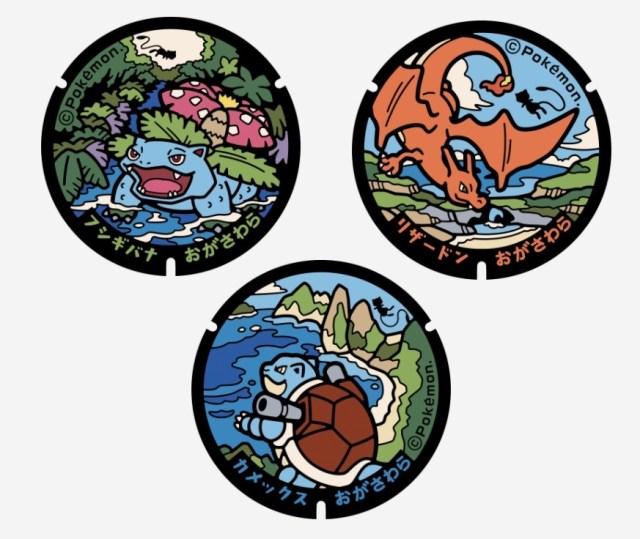
Pokémon Masters will need to spend an entire day traveling from Tokyo to spot the rarest of Gen I Pokémon and the evolved forms of the original three starters.
Out of the Generation I Pokémon, there’s no harder species to find than Mew. Unavailable in the original Pokémon Red/Green/Blue games and absent from the initial TV anime arc, it wasn’t until the first Pokémon movie that Mew made its official debut.
So it’s fitting that when the rarest of Pokémon gets its own Pokémon manhole cover, or Pokéfuta, as they’re officially called, it’s in an extremely remote location: Ogasawara, Tokyo.

“Wait a second,” you might be thinking. “How can part of Tokyo be ‘extremely remote?’ It’s the biggest city in Japan!” Yes that’s true, but Ogasawara is far from Shinjuku, Ginza, Akihabara, or any of the other central wards of Tokyo. Just how far outside downtown is it? About 1,000 kilometers (621 miles) to the south, across a vast stretch of ocean.
▼ Ogasawara (you’re going to need to zoom out to see the rest of Japan)
The town of Ogasawara, or Ogasawaramura, to use its full name, is on the island of Chichijima, part of the Ogasawara Islands (also known as the Bonin Island chain). While legally part of Tokyo, Ogasawara is obviously its own isolated community, and Mew making it its new home is a feather in the cap of the town’s roughly 2,500 residents.

Mew isn’t making the trip to Ogasawara alone, though. Last Saturday, which was also the 25th anniversary of the release of the first Pokémon games, Pokéfuta for Mew, Venusaur, Charizard, and Blastoise were all installed in the town, with the artwork showing the three maximum-evolved starter Pokémon frolicking in Chichijima’s tropical scenery while a silhouette of Mew can be spotted floating in the sky.

Exact locations for the four new Pokéfuta can be found here on the project’s official website.
So how do you get to Ogasawara? Well, there’s no airport on Chichijima, so the only option is a ferry that departs from downtown Tokyo’s Takeshiba Terminal and takes 24 hours to get there. But hey, it’s a trip you’ll never forget, and not only is Ogasawara a paradise of natural beauty, it’s also the only place in Tokyo that grows its own coffee beans.
Sources: Pokéfuta official website, PR Times
Top image: Pokéfuta official website
Insert images: PR Times, Pokéfuta official website
● Want to hear about SoraNews24’s latest articles as soon as they’re published? Follow us on Facebook and Twitter!

No hay comentarios:
Publicar un comentario